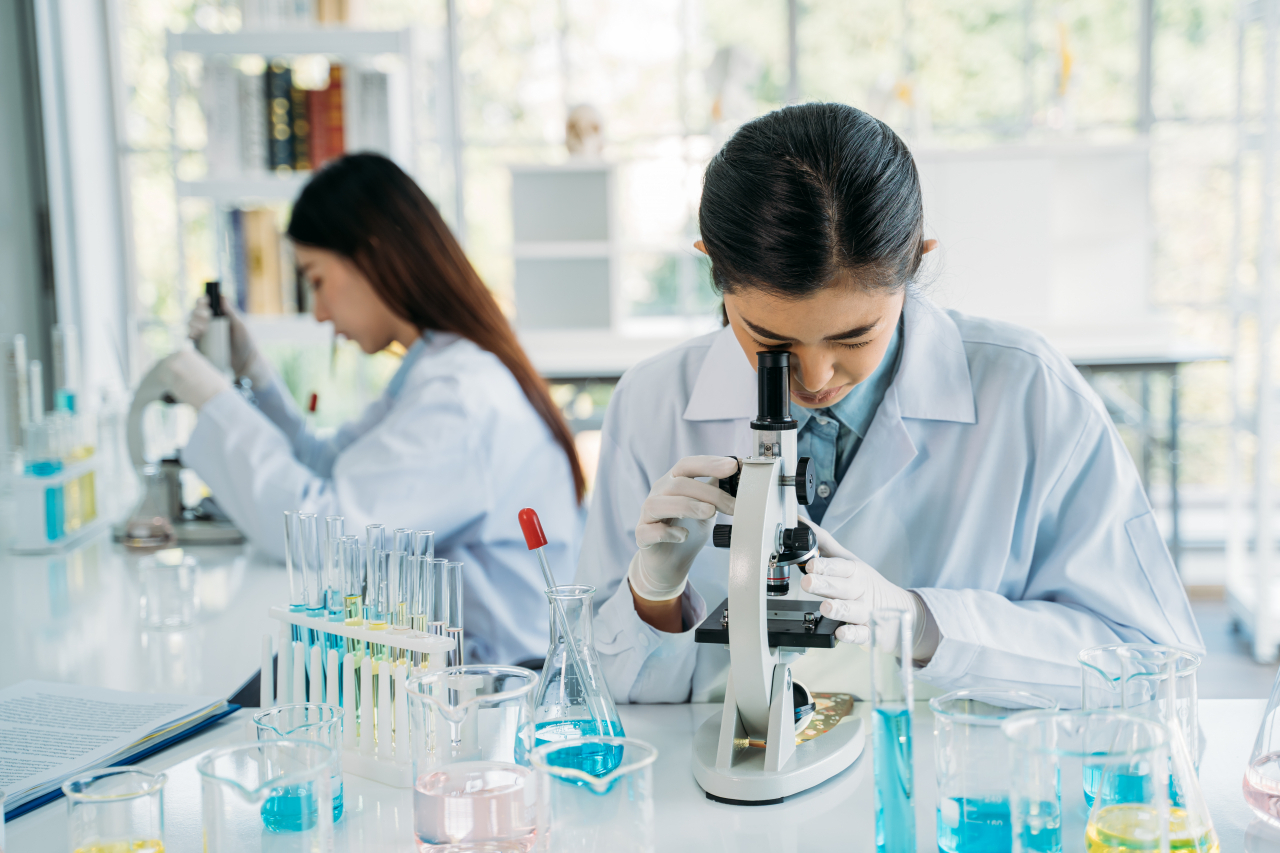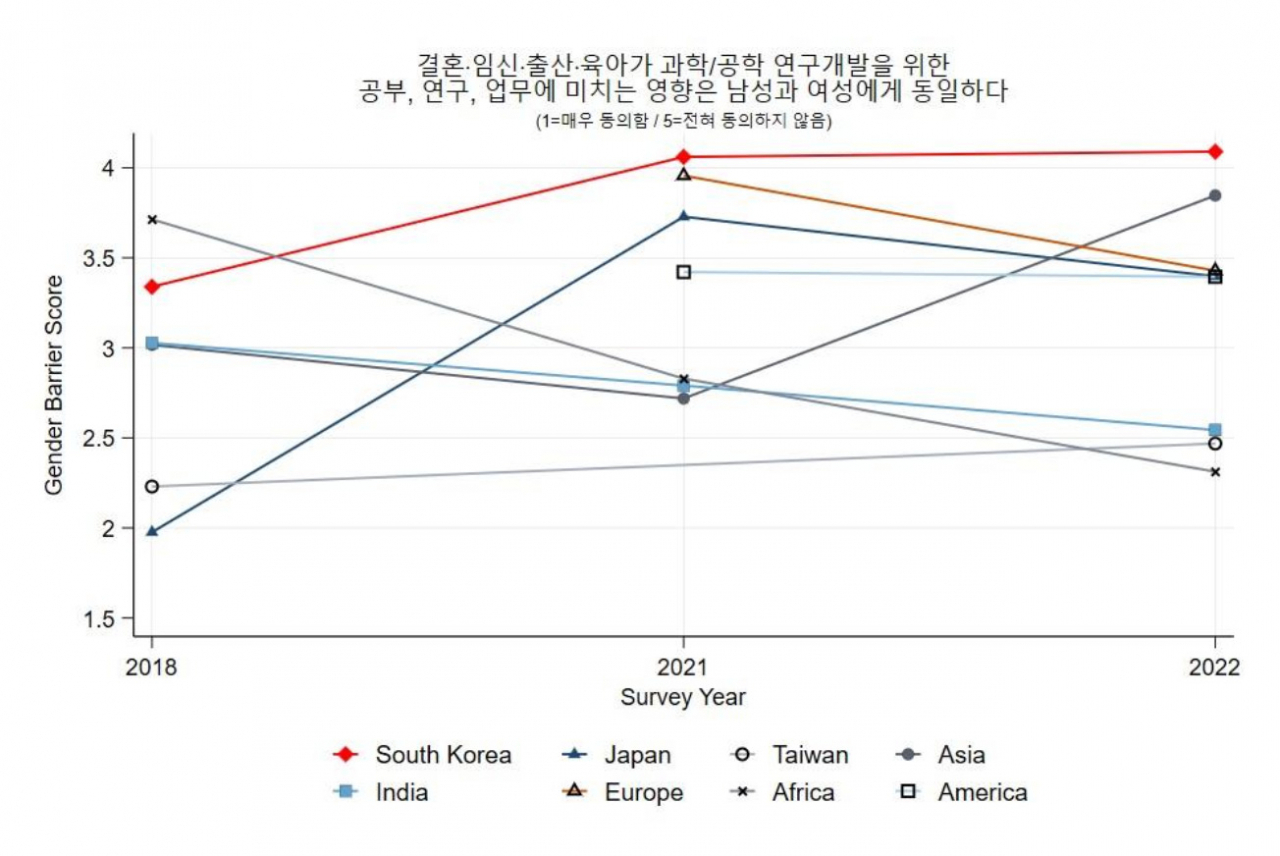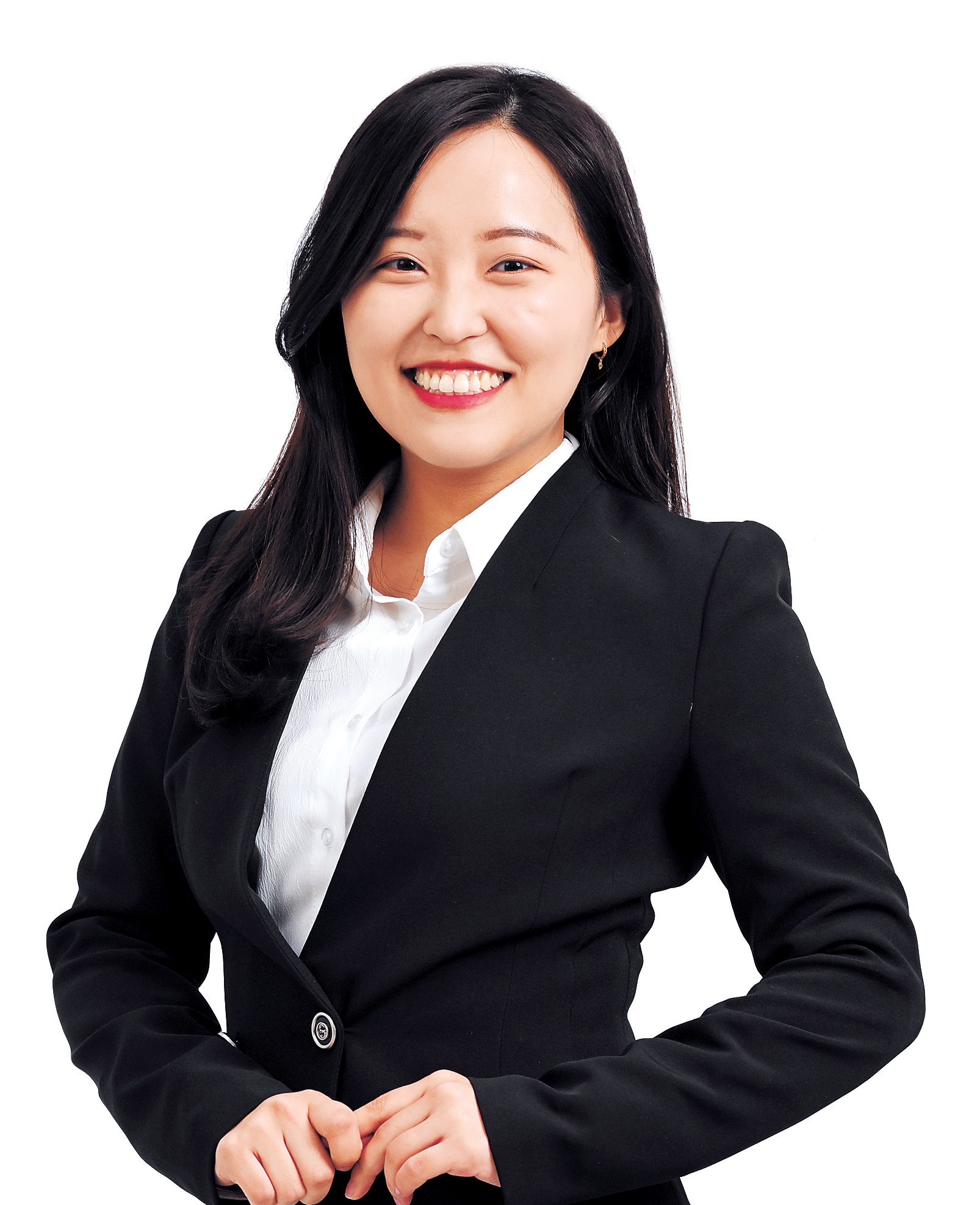Korean female scientists struggle with highest gender barrier in world
More female scientists give up on their career due to marriage, pregnancy, childbirth and child care
By Lee Jung-jooPublished : Nov. 29, 2023 - 15:55

Female scientists in South Korea struggle with the highest gender barrier in the world, a study revealed Tuesday.
Korea scored an average of 4.09 out of 5 in a scale that measures the gap between the effects of marriage, pregnancy, childbirth and child care on male and female scientists, according to a 2022 survey analysis conducted by the Association of Korean Woman Scientists and Engineers. Higher scores indicate that respondents experienced tougher gender barriers.
Korea outscored 86 other countries that were included in the survey. The countries include other Asian nations including Japan, Taiwan and India. Scientists in the US, Africa and Europe participated as respondents as well.
The 2022 survey, which the KWSE has conducted annually since 2016, involved 1,904 female scientists from 89 different countries.
Korea’s average score also rose compared to that of 2018, which stood at 3.34. Despite legal and institutional efforts to address gender barriers and promote gender equality in science and technology, the KWSE concluded that a significant gender gap still persists.
The number of female scientists here who claimed that they experienced difficulties with their research or had to give up on their careers due to marriage, pregnancy, childbirth and child care has been on the rise since 2017, the study noted.

A separate score that measures the number of female scientists who gave up their careers due to marriage, pregnancy and child care inched up to an average of 3.64 last year, compared with an average of 2.53 in 2017. This is a higher score compared to other Asian countries, with Japan scoring an average of 3.62 and Taiwan scoring an average of 3.00.
“Though the government has established and implemented a basic plan to foster and support female scientists and technicians, the gender gap that they must overcome is still quite high,” said KWSE Vice President Kim Sook-kyung. Kim cited the Global Gender Gap Report presented by the World Economic Forum in 2022, which ranks Korea 99th out of 146 countries in the gender gap rankings.
“With Korean female scientists feeling a higher gender barrier compared to other countries, it is crucial that policies be made and systems be improved so that women in science and technology can be better represented."



















![[Today’s K-pop] Treasure to publish magazine for debut anniversary](http://res.heraldm.com/phpwas/restmb_idxmake.php?idx=642&simg=/content/image/2024/07/26/20240726050551_0.jpg&u=)